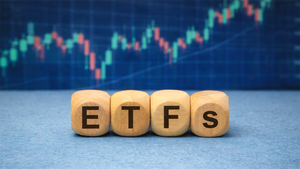
The cryptocurrency landscape is constantly evolving, and as digital assets gain mainstream traction, so too do the mechanisms facilitating their access. Among these, crypto ATMs have emerged as a contentious frontier, sparking a vigorous debate over the necessity and nature of their regulation. As of late 2025, with several key regulatory frameworks like California's Digital Financial Assets Law (DFAL) and Maryland's new law having recently taken effect in July 2025, the conversation has intensified. The core of this discussion revolves around a critical assertion: that sensible regulation is not an attack on crypto's innovative spirit, but rather a vital step towards its legitimacy, consumer protection, and sustainable growth.
This debate, far from being an abstract policy discussion, has tangible implications for how individuals interact with digital assets and how the broader crypto ecosystem is perceived. Proponents argue that a "cleaner" crypto ATM environment, free from the rampant fraud and illicit activities that have plagued the sector, will foster trust and pave the way for wider adoption. Opponents, however, often voice concerns about overreach, stifling innovation, and undermining the decentralized ethos of cryptocurrency. The outcome of this ongoing regulatory push will undoubtedly shape the future accessibility and public perception of cryptocurrencies for years to come.
Market Impact and Price Action
The ongoing global movement towards regulating crypto ATMs, particularly the implementation of new state laws in the U.S. and the phased rollout of the EU's Markets in Crypto-Assets (MiCA) regulation, has created a nuanced impact on the broader crypto market. While there isn't a direct "price action" tied to a single regulatory event for crypto ATMs, the overall sentiment around increased regulatory clarity tends to be viewed positively by institutional investors and those seeking long-term stability in the crypto space. The prospect of a more secure and transparent on-ramp for fiat-to-crypto conversions can reduce perceived risks associated with the industry.
However, overly stringent or fragmented regulations could also introduce operational burdens on crypto ATM operators, potentially leading to a reduction in the number of machines or increased transaction costs, which might deter some users. In jurisdictions like Australia, where authorities have refused to renew licenses for risky operators and are considering outright bans due to high scam rates, the market for crypto ATM services could contract significantly. Conversely, in areas like California and Maryland, where new laws effective July 2025 cap daily transactions and fees while mandating disclosures, a more structured and consumer-friendly market might emerge, potentially leading to increased legitimate usage over time. The long-term impact suggests a shift towards a more compliant and potentially consolidated crypto ATM industry, which, while perhaps slowing rapid expansion in some areas, could contribute to the overall maturation and legitimization of the cryptocurrency market.
Community and Ecosystem Response
The crypto community's response to increased ATM regulation is, predictably, a mixed bag. On one side, staunch decentralization advocates express concerns that regulatory frameworks, particularly those requiring extensive Know Your Customer (KYC) and Anti-Money Laundering (AML) checks, undermine the very principles of anonymity and freedom that underpin cryptocurrency. They argue that such measures introduce unnecessary friction and centralize control, pushing users towards less regulated, potentially riskier alternatives.
Conversely, a significant portion of the community, especially those focused on mainstream adoption and consumer protection, welcomes the regulatory push. Influencers and thought leaders who champion the long-term viability of crypto often highlight the importance of shedding the industry's association with illicit activities. They see regulations, such as those implemented in California and Maryland as of July 2025, which mandate fraud warnings, transaction limits, and fee caps, as crucial for building public trust and protecting vulnerable individuals from scams. Industry groups themselves have expressed a willingness to collaborate with policymakers to create frameworks that balance accessibility with security. Broader crypto Twitter and Reddit sentiment often reflects this divide, with passionate debates over the trade-offs between regulatory compliance and crypto's foundational ethos. For DeFi protocols, NFT projects, and Web3 applications, a more regulated on-ramp could indirectly benefit user acquisition by making the initial step into crypto feel safer and more legitimate for newcomers.
What's Next for Crypto
Looking ahead, the trajectory for crypto ATMs and the broader crypto market points towards an increasing emphasis on regulatory harmonization and consumer safety. With the effective dates of significant state-level regulations in the U.S. (like California's DFAL and Maryland's new law) now in the past as of July 2025, and the EU's MiCA regulation continuing its phased implementation, we can expect a clearer, albeit potentially more restrictive, operating environment for crypto ATM businesses. The proposed federal "Crypto ATM Fraud Prevention Act" (S.710) in the U.S., if passed, would further solidify national standards, requiring explicit scam warnings, fraud prevention policies, and potentially uniform transaction limits across states.
The short-term implications suggest that illegitimate operators will find it increasingly difficult to conduct business, leading to a cleaner but possibly smaller crypto ATM footprint in some regions. Long-term, this regulatory clarity could attract more reputable financial institutions and technology providers to enter the crypto ATM space, viewing it as a legitimate extension of financial services rather than a regulatory grey area. Strategic considerations for projects and investors will involve prioritizing compliance and integrating robust AML/KYC solutions. Potential catalysts include further legislative action at federal levels globally, technological advancements in identity verification, and continued public education campaigns to prevent scams. The most likely scenario is a continued tightening of regulations, leading to a more secure but potentially less anonymous experience, ultimately aiming to integrate crypto ATMs more seamlessly into the regulated financial ecosystem.
Bottom Line
The ongoing debate and subsequent implementation of regulations around crypto ATMs underscore a critical juncture for the cryptocurrency industry: the transition from a niche, often unregulated, frontier to a more mature and integrated component of the global financial system. For crypto investors and enthusiasts, the key takeaway is that responsible regulation, exemplified by new laws in California and Maryland effective July 2025 and the EU's MiCA framework, is increasingly viewed not as an adversarial force but as an essential catalyst for long-term health and widespread adoption. These measures, designed to combat rampant fraud and money laundering, build trust and protect vulnerable populations, thereby strengthening the industry's credibility.
The long-term significance lies in the potential for crypto ATMs to shed their association with illicit activities and become a more reliable and accessible gateway for mainstream users to enter the digital asset space. This shift is crucial for fostering greater public confidence and encouraging broader crypto adoption. Important metrics to monitor include the effectiveness of new regulations in reducing fraud rates, the growth or contraction of the legitimate crypto ATM market, and the degree of regulatory harmonization achieved across different jurisdictions. As the industry matures, the narrative that "cleaning up crypto ATMs isn't anti-crypto" will likely gain further traction, cementing the idea that a regulated environment is a necessary foundation for a truly decentralized yet responsible financial future.
This article is for informational purposes only and does not constitute financial or investment advice. Cryptocurrency investments carry significant risk.





